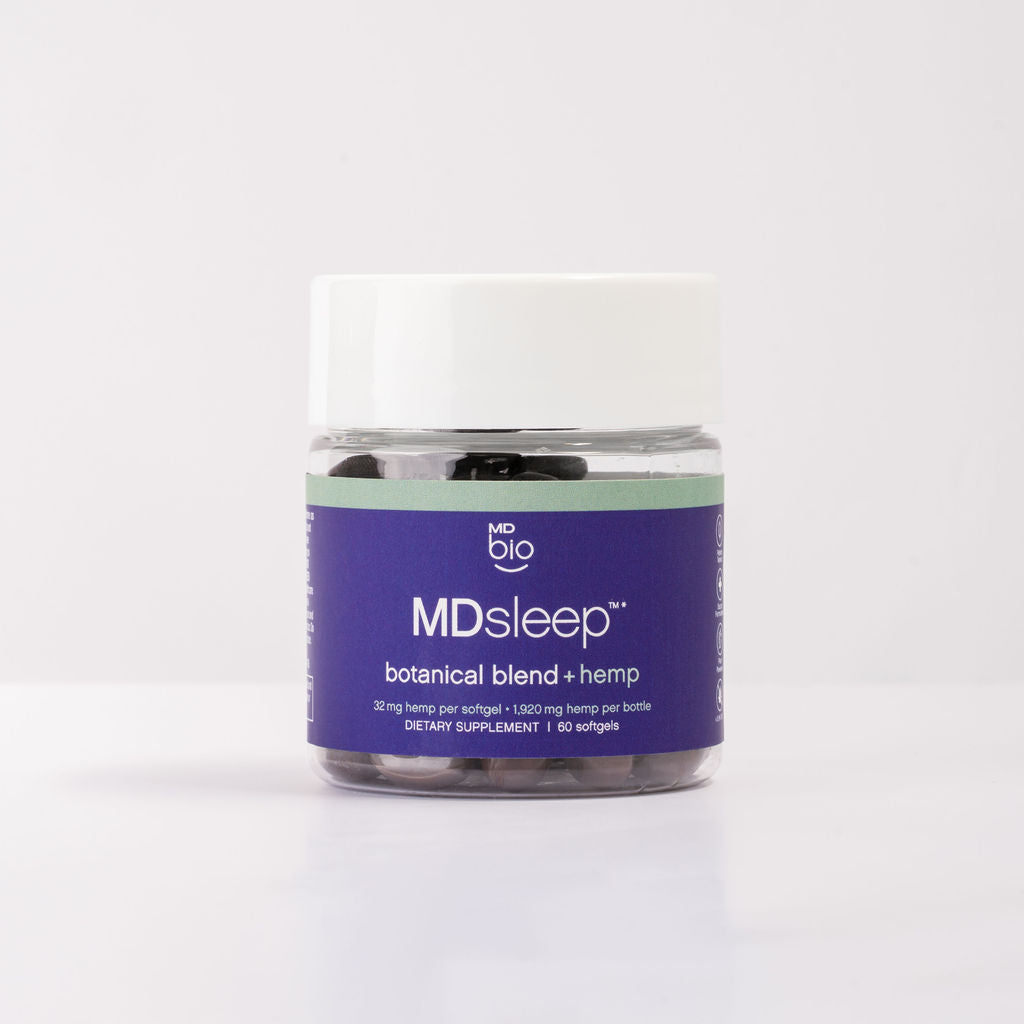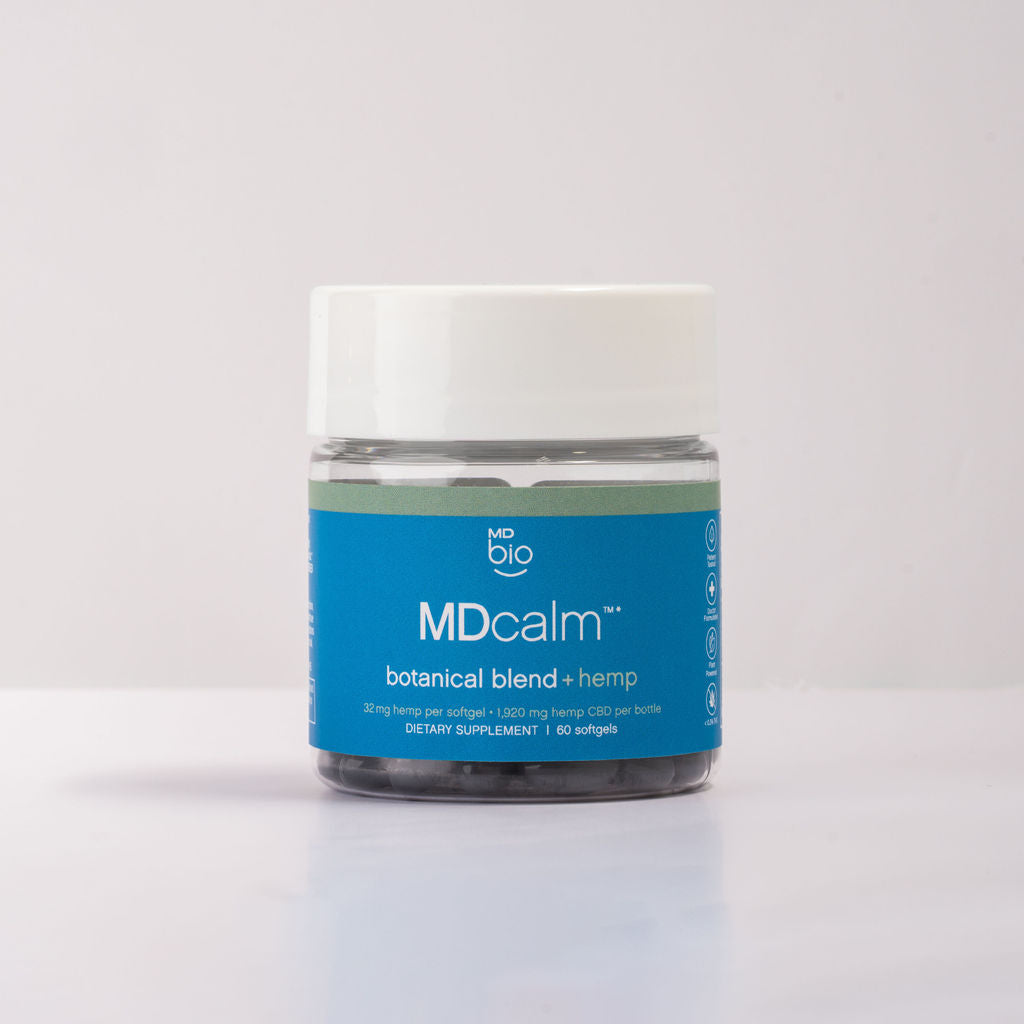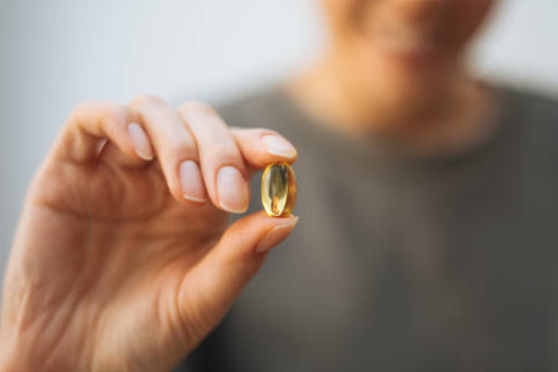
Anxiety at Night: 9 Sleep Anxiety Tips to Help You Rest
Anxiety is a sense of discomfort ranging from minor to extreme, including fear or panic. Everybody occasionally suffers feelings of anxiety. For instance, you might experience anxiety and worry before starting a new job, an exam, or a general health check.
Your anxiousness may, however, occasionally last longer than usual. When this occurs, it may disrupt both your daytime and nighttime routines. For example, high anxiety episodes at nighttime can be brought on by life's stresses, harmful sleeping patterns, and other medical problems.
Anxiety at night is extremely prevalent today. According to numerous clinical studies, lack of sleep has been linked to an increased risk of anxiety. Research has shown that anxiety problems and poor sleep quality are related.
There is hope. With these sleep anxiety tips, you can significantly enhance your quality of life by treating your night anxiety and taking care of your sleep problems.
What Causes Your Anxiety at Night?
There isn't a straightforward reason why anxiety for certain people gets worse at night. Instead, it might be the outcome of several variables.
A possibility is that you have fewer distractions and more opportunities for concern about your job, income, or relationships whenever it's silent, and the lights go out. In addition to causing you to worry about how well you'll be able to operate the next day, having trouble falling asleep can also cause other problems. These other causes of anxiety at night could be:
- Excessive caffeine consumption can make some people jittery and more anxious, especially during the day or right before night.
- Traumatic memories or recent experiences of trauma.
- Generalized anxiety disorder or a related condition.
- Greater awareness of aches and pains or other health worries.
How to Relieve Anxiety at Night
Anyone can master how to reduce anxiety at night, so don't worry. Being too stimulated makes getting the sleep you need challenging, second only to light exposure.
The root cause of your anxiety can be identified and treated with the assistance of a trained mental health expert, who may also suggest treatment alternatives, including cognitive behavioral therapy (CBT) and relaxation techniques. Natural supplements might be another method to help reduce nighttime anxiety and help make you rest better.
Let's have a closer look at the top 8 sleep anxiety tips and how to relieve anxiety at night:
1. Alternative Medications
If you find it difficult to fall asleep peacefully, you're not alone in staying up late: About 70 million Americans have sleeping quality problems.
For some people, alternative medicine is an excellent treatment option for anxiety at bedtime. While there is significantly less study on herbal and botanical treatments for anxiety than on conventional pharmaceuticals, a growing body of evidence supports using various natural remedies for sleep and anxiety – some of these are listed below.
Nonetheless, a comprehensive study found that both nutritional and herbal supplements may be beneficial treatments for anxiety.
Keep in mind that, unlike with medications, the U.S. Food and Drug Administration doesn't control the quality or purity of supplements. So before using supplements, check with your doctor to ensure there won't be any interactions.
The natural remedies below may interest you if you're wondering how to relieve anxiety at night.
Passionflower
Passionflower is used today to treat insomnia and anxiety. Gamma aminobutyric acid (GABA) is thought to be the molecule that passionflower uses to increase its effects on the brain. GABA makes you feel more at ease by reducing the activity of particular brain cells.
Hemp Extracts
According to a 2019 study, hemp oil may help calm the central nervous system. Researchers examined the impact of hemp oil on 72 individuals with anxiety or sleep disorders and discovered that it decreased anxiety in 79.2% of participants and enhanced sleep quality in 66.7. This early research on hemp oil's potential to treat anxiety is very encouraging.
Kava
Participants in kava research trials had noted enhanced physical signs of stress, such as a reduction in muscle tension, increased heart rate, and nervousness, as well as enhanced coping skills, mood elevation, and sleep quality.
The growing body of research suggesting Kava's therapeutic potential opens up a promising new vista for the human population's access to safe, efficient treatment for stress and generalized anxiety disorder.
Lavender Flower Extract
Lavender, known for its effectiveness as lavender for anxiety, has long been used as a natural sleep aid to alleviate insomnia and enhance sleep quality. According to 2010 research, taking lavender orally can help with restlessness and sleep disturbances. Besides improving general well-being and quality of life, this may help with anxiety.
L-lysine
Humans with increased dietary intakes of the critical amino acid L-lysine have reported experiencing less persistent anxiety. In humans with high trait anxiety, a combination of L-lysine and L-arginine has been suggested to restore hormonal stress responses.
Reishi Mushroom
Chinese and Japanese herbalists frequently suggest reishi mushrooms to patients who have trouble falling asleep. Some regard Reishi as a "Shen tonic" for regaining emotional stability and alertness.
Magnesium L-Threonate
Because it is readily absorbed and may reach the brain, magnesium L-threonate has been argued to have the potential to slow down the aging process in our brains. Adults with sleep difficulties, anxiety, and cognitive dysfunction have previously reported benefiting from it.
2. Taking Care of Fundamental Issues
One of our top sleep anxiety tips is taking care of your health. Sometimes an undiagnosed medical condition may be connected to anxiety in certain persons. In some cases, the first warning signals of a medical condition are anxiety-related signs and symptoms.
Be on the lookout for the following conditions to better understand the possible cause of your anxiety:
- Irritable bowel syndrome
- Hyperthyroidism
- Diabetes
- Heart disease
- Chronic pain
- Certain brain tumors
Your doctor may request tests to look for symptoms of a problem if they have reason to believe your worry may have a medical cause.
3. Meditate
You might get better sleep and reduce your anxiety at night if you meditate. Meditation can calm the body and mind while improving inner peace as a stress reducer. By fostering general serenity, meditation at bedtime may help lessen insomnia and sleep problems.
A wide range of physiological changes takes place when you meditate. These adjustments trigger sleep by affecting particular bodily functions.
Meditation Studies
For instance, in a 2015 study featured in JAMA Internal Medicine Reliable Source, researchers examined the effects of mindfulness meditation on 49 adults who had mild sleep problems. The participants received a 6-week course in either meditation or sleep hygiene at random. The meditation group had less daily tiredness and less sleeplessness at the conclusion of the trial.
The researchers claim that meditation probably benefits in a variety of ways. Stress and worry are common causes of sleep issues, but meditation enhances your ability to relax. Additionally, it enhances autonomic nervous system regulation, which lessens how readily you are awakened.
Meditation might also:
- Raise melatonin levels (your sleep hormone)
- Cause a rise in serotonin (precursor of melatonin)
- Lower heart rate
- Lower blood pressure
- Energize the brain regions in charge of sleep
How to Practice Mindful Awareness
- Take your phone and all other sources of distraction out of your room. Make yourself comfortable and lie down.
- Remember to breathe deeply. Breathe in for 10 counts, then exhale slowly for 10 counts. Ten times. Do this sets five times.
- As you inhale, stiffen up your body. Pause, unwind, and breathe out. Five times.
- Keep your body and breath in mind. Consciously relax any area of your body that feels tight.
- Slowly shift your attention back to your breathing whenever an idea enters your mind.
4. Try Deep Breathing
This stress-relieving breathing exercise may be performed before bedtime and only requires a few minutes of your time. If you frequently include it into your everyday sleeping routine, you'll reap the benefits over time.
You can perform this exercise while sitting or lying in your bed. As much as you can, make yourself comfortable. If you can, take off any clothing that makes it difficult to breathe or that is uncomfortable.
You can use several breathing techniques to unwind and fall asleep, but they all follow a few universal rules. Always keep your eyes closed, as this may help you block out distractions. Think of the calming effects of your breath as you concentrate and follow it.
The advantages of each of the following exercises vary just a little. Try them out to determine which is the best fit for you.
The 4-7-8 Breathing Technique
- The first step is to sit upright in your bed.
- The tissue behind your upper front teeth is where you should place the tip of your tongue. Throughout the workout, keep your tongue in that spot.
- Use your mouth to exhale.
- Keep your mouth shut. Inhale through your nose as you count to four.
- Take a deep breath and count to seven.
- Exhale through your mouth while counting to eight.
The Buteyko Breathing Method
Exercises that involve holding your breath are used in this technique. You can benefit most from this technique with the guidance of qualified instructors.
A Buteyko exercise known as relaxed breathing is as follows:
- Sit comfortably with your legs extended and your back straight. You can close your eyes or raise a modest upward gaze.
- Put your hands on both the top and bottom of your chest. Quietly inhale through your nose.
- Pay attention to the parts of your body that are moved by breathing. Pay attention to your lower chest.
- Allow your upper hand to rest on your lap after a little while.
- Relax your face, jaw, shoulders, neck, shoulders, abdomen, hips, and legs gradually.
- Allow your breathing to return to normal after continuing with your relaxed breathing for around three minutes.
Diaphragmatic Breathing Method
To practice diaphragmatic breathing:
- Sit on a chair or bend your knees over a pillow while lying on your back.
- Put one hand on your tummy and the other flat against your chest.
- Breathe deeply and slowly through your nose, allowing the hand on your stomach to rise and fall in time with your chest hand.
- Next, slowly inhale through your pursed lips.
- You want to eventually be able to breathe in and out without having to move your chest.
By strengthening your diaphragm, this approach slows your breathing and lowers the amount of oxygen you need.
Box Breathing
Square breathing is another name for this exercise. It's a technique that can aid in breathing relaxation. You can perform this exercise anywhere. The majority of the time, it's simpler to unwind when you're comfy in bed and free of distractions:
- Inhale for four seconds.
- For four seconds, hold your breath.
- Exhale for four seconds.
- Wait four seconds, do it again.
Your body and mind can benefit from slow, deep breathing exercises in several ways, including:
- Less tension
- Greater synthesis of melatonin. These hormone levels are frequently decreased in insomniacs.
- Improved asthma symptoms
- Calm nervous system
Every day, spend a few minutes doing this for the best results.
5. Exercise Daily
Researchers have reported regular aerobic exercise to reduce overall stress levels, increase and stabilize mood, enhance sleep quality, and boost self-esteem. Physical activity can start to provide anti-anxiety effects after around five minutes.
According to psychologists researching the benefits of exercise in treating anxiety and depression, a 10-minute walk may be just as effective as a 45-minute workout. According to certain research, exercise can instantly improve many people's gloomy moods.
Although the effects might only last a short while, they show that a little walk or other straightforward activity can provide several hours of pain relief, much like taking an aspirin for a headache.
Here are some pointers on how to relieve anxiety at night with exercise:
- Jog, walk, ride, or dance for 30 minutes three to five days per week.
- Set manageable daily objectives and focus on consistency over perfect exercises. Walking for 15-20 minutes a day is preferable to saving a three-hour fitness marathon for the weekend. Numerous scientific studies indicate that frequency is most crucial.
- Find enjoyable or enjoyable types of exercise. People that are extroverted frequently like learning in a group setting. More introverted people often like solitary activities.
- Use your phone or other portable media player as a distraction to download music, podcasts, or audiobooks. Many people discover exercising while listening to their favorite music is more enjoyable.
Check out the top anxiety apps as well. These apps provide a range of methods, including acupressure and natural sounds that can help with our anxiety at night. On the other hand, apps might not be the way forward if you find your phone contributes to your anxiety before you sleep.
6. No Stimulants Before Bed
Stimulants are chemicals that affect the body's neurological system and boost alertness while making it difficult to fall asleep. Sedatives and hypnotics, on the other hand, reduce brain activity and make people feel sleepier.
Caffeinated beverages like soda, coffee, and others might keep you awake at night. Alcohol may aid in your initial ability to fall asleep, but it can also cause sleep disturbances, especially later in the night. Avoid eating things that can trigger heartburn too late in the day, including chocolate, cured meats, and tomato sauce.
Also, be careful not to take any stimulant medication before you go to bed.
While staying hydrated during the day is important, you shouldn't overdo it before bed because toilet breaks can make you restless and agitated.
7. Turn Off Electronics
As tempting as it may be to use your phone or computer before bed, studies have shown that doing so might disrupt sleep by preventing the release of melatonin. This hormone is naturally produced in the evening to make you feel sleepy and fatigued. When you should be slowing down, this causes neuropsychological arousal that heightens feelings of alertness.
Embracing Natural Sleep Cycles
Healthy humans' biological clocks operate on a 24-hour sleep-wake cycle. Your body releases cortisol, a hormone that awakens and alerts you as the sun rises in the morning. Another hormone, melatonin, which causes feelings of tiredness, is released by the body when daylight diminishes.
Cell phones, tablets, readers, and computers with backlights emit short-wavelength enhanced light, also referred to as blue light. Blue light, which has been found to lessen or delay the melatonin produced naturally in the evening and lessen sensations of sleepiness, is also emitted by fluorescent and LED lights.
Slow-wave and rapid-eye-movement (REM) sleep, two phases of the sleep cycle that are essential for cognitive function, can be shortened by this blue light.
Advice for Technology Use at Night
In the hours before night, we advise staying away from computers, smartphones, and other blue light-emitting gadgets. This might not be an option for some people, such as those who work or study at night. The following tips will help you have more restful sleep if you must use one of these gadgets at night.
- Reduce your use of electronics throughout the day and at night: Using electronics for extended amounts of time during the day can have a negative impact on sleep. Shorter sleep duration, a later sleep onset, and increased sleep deprivation are common outcomes.
- Create a screen-free zone in your bedroom: Although many people want to keep a television in their bedroom, doing so is typically not advised due to the potential harm it can do to your sleep. We recommend taking out every electronic item from your bedroom and advising your children to do the same.
- Dim the bedroom lights: The lux unit measures light intensity. Regular indoor light levels of 100 lux or higher may suppress melatonin generation and disrupt your sleep-wake cycle. A far smaller degree of melatonin generation is impacted by dim indoor lighting.
- Use the nighttime mode on your devices: Many mobile phones, tablets, and other portable electronic devices have a "nighttime mode" that is more comfortable for your eyes before bed. The best evening modes, according to one study, lower blue light emissions and display brightness levels. If your smartphone does not automatically reduce the brightness in night mode, you should manually dim the display to relieve anxiety at night.
8. Create Comfort
Since embracing anything, even a pillow, can occasionally make you feel secure and comforted, many therapists advise using body pillows. Additionally, body pillows might sometimes reduce pains and help you fall asleep.
A body pillow can be incredibly cozy to cuddle as you nod off because it is made to maintain its shape and can improve your posture. It provides something to focus on and helps you retain a consistent posture rather than tossing and turning.
Also, invest in a firm mattress and pillows because your body develops pressure points while you sleep on an uncomfortable mattress, which makes you toss and turn. When a firm mattress and pillow support your body and neck's natural curves, it'll keep you cool and at ease as you sleep.
Use a particular kind of thick blanket called a weighted blanket, often weighing between 5 and 30 pounds. They are renowned for their ability to induce relaxing effects by simulating the hugging sensation through deep pressure stimulation. Weighted blankets have been demonstrated to assist foster emotions of calmness and peace because they can help enhance serotonin and melatonin while lowering cortisol and reducing anxiety at night.
How to Relieve Anxiety at Night: Final Thoughts
Although feeling anxious is common, it becomes problematic when it keeps you from getting enough sleep. An anxiety condition or general unease may be to blame for nervousness at night. What is now known is that anxiety can cause sleeping problems, which can then lead to greater anxiety, creating a vicious cycle.
Lifestyle adjustments and improved sleep hygiene are a great start if anxiety is interfering with your sleep. You can augment these by using natural remedies, creating a calm place for yourself before you rest.
We hope these how for relieving anxiety at night tips can help to decrease your anxiety and make you feel refreshed and well rested in the morning.
- Discover natural remedies to help you sleep soundly with our latest blog on "6 Insomnia Herbs." Unlock the secrets to peaceful sleep.












